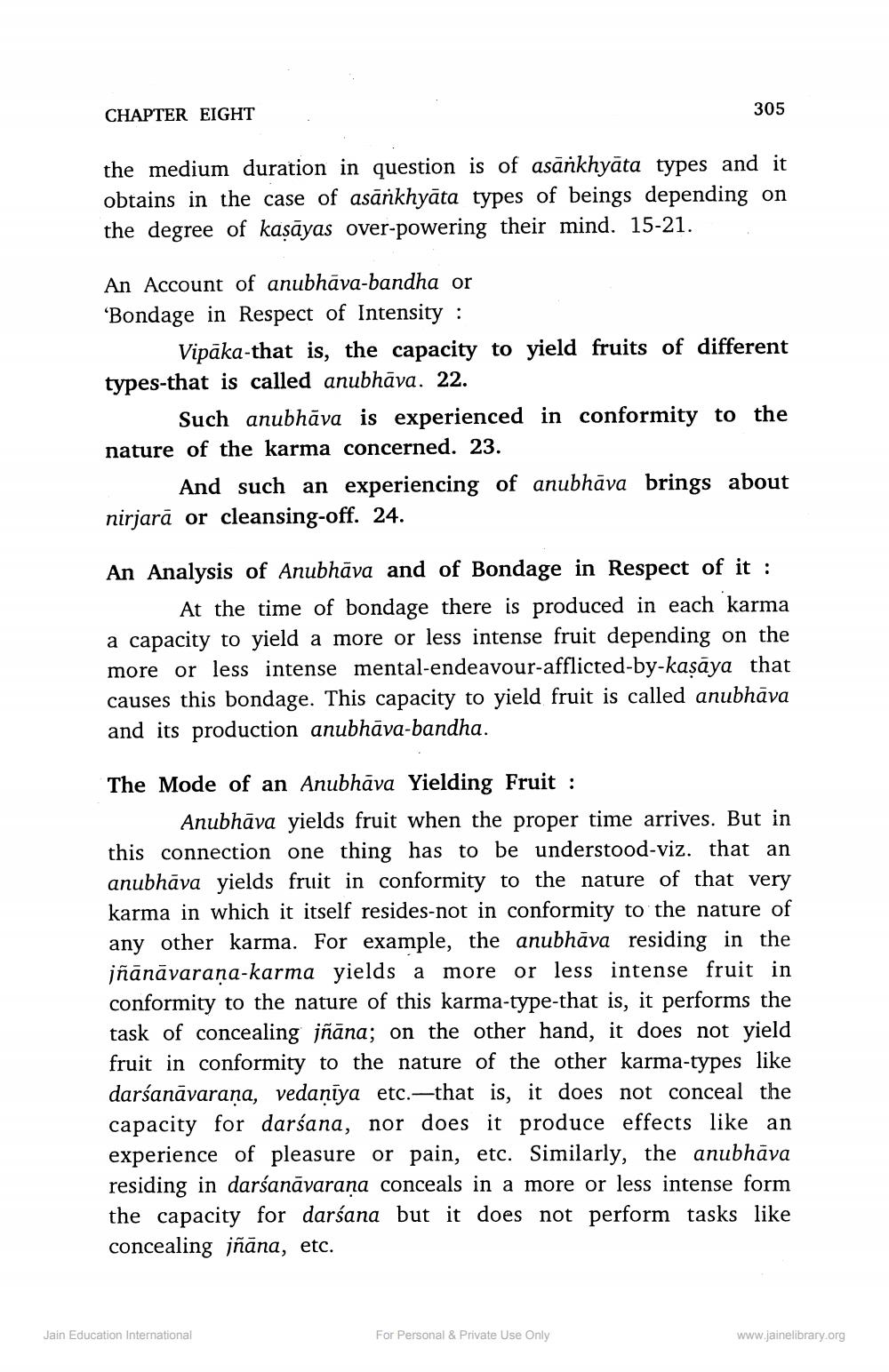________________
CHAPTER EIGHT
305
the medium duration in question is of asankhyāta types and it obtains in the case of asāňkhyāta types of beings depending on the degree of kaṣāyas over-powering their mind. 15-21.
An Account of anubhāva-bandha or ‘Bondage in Respect of Intensity :
Vipāka-that is, the capacity to yield fruits of different types-that is called anubhāva. 22.
Such anubhāva is experienced in conformity to the nature of the karma concerned. 23.
And such an experiencing of anubhāva brings about nirjarā or cleansing-off. 24.
An Analysis of Anubhāva and of Bondage in Respect of it :
At the time of bondage there is produced in each karma a capacity to yield a more or less intense fruit depending on the more or less intense mental-endeavour-afflicted-by-kasāya that causes this bondage. This capacity to yield fruit is called anubhāva and its production anubhāva-bandha.
The Mode of an Anubhāva Yielding Fruit :
Anubhāva yields fruit when the proper time arrives. But in this connection one thing has to be understood-viz. that an anubhāva yields fruit in conformity to the nature of that very karma in which it itself resides not in conformity to the nature of any other karma. For example, the anubhāva residing in the jñānāvaraņa-karma yields a more or less intense fruit in conformity to the nature of this karma-type-that is, it performs the task of concealing jñāna; on the other hand, it does not yield fruit in conformity to the nature of the other karma-types like darśanāvarana, vedaniya etc.—that is, it does not conceal the capacity for darśana, nor does it produce effects like an experience of pleasure or pain, etc. Similarly, the anubhāva residing in darśanavarana conceals in a more or less intense form the capacity for darśana but it does not perform tasks like concealing jñāna, etc.
Jain Education International
For Personal & Private Use Only
www.jainelibrary.org




